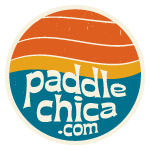As adults, we often find it difficult to ask for help or clarification when we don’t understand something. We are reluctant to appear weak or ignorant, and we are frequently intimidated by the very people we should be requesting assistance from. There is something frightening about asking for help from those who are better than us. We tend to put people up on a pedestal and perceive them as more important than ourselves, making it nearly impossible to request any assistance. All too often I have seen paddlers who need
Have you considered attending a dragon boat camp, but are unsure of whether you are up to the challenge of 5-6 straight days of paddling? Do you wonder what is involved in a camp that is so singularly focused on paddling? Have you inquired about a camp, but are nervous not knowing anyone who might attend? In this post, I’ve outlined a typical week at one of the camps I coached at the past two years in order to give you an idea what a dragon boat camp is all about. Keep in mind that
We train hard. We go to practice. We remain focused. We set goals. We work hard to achieve them. Yet inevitably there are things standing in our way, preventing us from improving at the rate we would like to. All too often, we focus on the things we think we need, rather than things we need to get rid of. Perhaps it’s time to take a look at things to eliminate in our life in order to see the improvements we so desperately desire. Here is a list of 10 things to
Do you ever wish you could go back in time and start your dragon boating career over again? Or that you could at least go back and give yourself some advice along the way? When I think back to my first day on the dragon boat, I recall exactly how I felt. The team I joined did an on-water warmup that lasted exactly two and a half minutes. I thought I was going to die. My arms were killing me (because let’s face it, almost no one knows how to
Coaches are a vital part of every team. The team’s trainer, teacher, mentor, negotiator, problem solver, motivation provider, facilitator, and organizer; a coach is a vital part of the team. Sometimes coaches can be a bit intimidating, especially when you are new to the team. We look up to our coaches, not only because they are selecting the race crew, but also because they hold such in-depth knowledge of the sport. Having a conversation with the coach might not always be easy, but open communication with your coach is essential to your
Think back to your first day on the dragon boat. Chances are, you were given a paddle, a life vest, and a whole boatload of directions. Do you remember much of what was said to you? Probably not. If you were anything like me, your whole focus was on NOT clanking paddles with the people around you. It’s a wonder I even came back for more. Forget about technique. Just getting my timing down was a bonus. How can you help a new paddler through those times when the pain and desperation of paddling make a person want to
A new dragon boat paddler doesn’t get many weeks in a boat until they’re asked, “But, have you ever tried outrigger?” An astute new paddler will note that dragon boating is but one fast, sprinty, splashy, corner of a very large and comprehensive paddling universe. Becoming a part of the broader universe of single-bladed paddling should be a goal of any dedicated dragon boat paddler. For many people, dragon boating is like a “gateway drug” to the paddling universe. Tweet it! A new paddler is likely to wonder, “What do I gain
Whether you are a “mouth breather,” a “heavy breather,” or a “silent breather,” the truth of the matter is: EVERYONE HAS TO BREATHE! But the question often is, “When do I breathe while I’m paddling?” Newer paddlers are often so focused on all the other complicated components of paddling that they completely neglect the importance of breathing. Yes, timing is crucial on a dragon boat, but so is oxygen intake! Breathing is the body’s way of bringing oxygen to the cells. You aren’t much use to anyone on the boat if you
Now that your team has made the decision to become more competitive, it is important to begin some type of testing in order to track the progress of paddlers and to determine the stronger paddlers who are able to compete at this new level. The former method of allowing all paddlers to participate on the race boat regardless of experience or ability will no longer work. You cannot place inexperienced or lower-level paddlers on a competitive race boat and expect to compete with the big dogs. So, how do you determine who is ready?
The decision to transition a team from a recreational, social one to a more competitive team is often a difficult one which might be met with some resistance. Paddlers who are accustomed to showing up to an occasional practice and yet still racing with the team will perhaps struggle with the idea of being asked participate in fitness testing and to commit to a more rigorous training schedule. However, paddlers who are eager to take it up a notch will be happily challenged by the new rigors. So, how does a team go about

